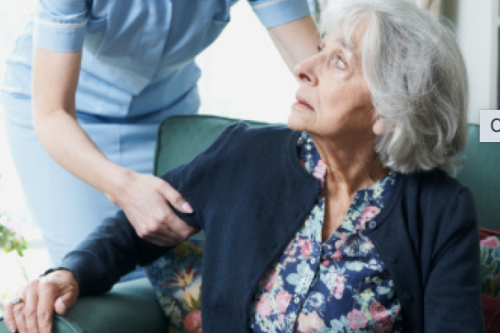
You may have to be able to identify signs that someone you care about is being abused at a nursing home, or similar residential care facility. That reality exists because Infirm or elderly people often feel too weak, afraid, or unable to defend themselves against abuse or neglect.
Family members can often spot signs of neglect and abuse in nursing homes. If you recognize signs of nursing home abuse, take action and find a Nursing home abuse attorney who can help you protect your loved one’s rights.
What are the rights of a resident in a nursing home?
Federal and state laws prohibit infringing on the rights of the elderly. Nursing home residents have the right to receive proper nursing care and be safe from:
- Abuse is an intentional infliction or unreasonable confinement, intimidation, or care/service deprivation of punishment that causes physical harm, pain, or mental anguish.
- Neglect – The failure to provide the care and services needed to relieve pain or harm. Failure to respond to potentially dangerous situations that could lead to resident harm or anxiety
What are the Different Types of Abuse?
- Physical abuse is when someone inflicts bodily harm through hitting, pushing, and/or slapping. It may also involve restraining an older adult against their will, such as locking them up in a room or attaching them to furniture.
- Emotional abuse, also known as psychological abuse, can be described by a caregiver using hurtful words, yelling, and threatening language, or repeatedly disregarding the older adult.
- Sex abuse is when an older adult is forced to be a part or watch sex acts by a caregiver.
- Financial abuse is when assets or money are taken from an older adult. This can be used to forge checks, take someone else’s retirement benefits or Social Security benefits, as well as using their bank accounts and credit cards without their consent.
What are the signs of neglect and abuse in a nursing home?
The U.S. Administration on Aging and The National Center on Elder Abuse have identified indicators that a resident might be the victim or sufferer of neglect or abuse.
Signs of abuse
- A resident complains they are being neglected or abused. Don’t ignore a complaint. Ask for details and determine if there is any evidence to support the complaint.
- Sudden changes in alertness and behavior, including withdrawal from previously, enjoyed activities or becoming less communicative.
- Increased agitation near certain residents or staff members at nursing homes.
- Staff becomes reluctant to allow you to see a resident or be alone with one.
Signs of neglect
Neglect is failing to meet any of the nursing home’s legal obligations to residents. Neglect can be seen in the following signs:
- Malnutrition. Malnutrition can be caused by a lack of food, or a lack or inability to absorb nutrients from food. Malnutrition can cause physical weakness that increases the chance of falling and can also lead to infections or other health problems.
- Dehydration. You can get dehydration from high fever, diarrhea, certain medications like diuretics, and a low intake of liquids. You may also experience malnutrition.
- Bedsores. Pressure ulcers or bedsores are open wounds that result from prolonged sitting or lying down, such as in a chair or bed. Patients who are admitted to nursing homes without having bedsores should be aware of them.
- Infections. Untreated open wounds, such as bedsores, can become infected. However, many infections that occur in nursing homes are caused by neglecting to maintain cleanliness and sanitation standards.
- Medication Errors. Incorrect dosages, incorrect timings, and incorrect medication administration can all lead to serious medical problems.
- Personal hygiene is declining. Inadequate clothing, fecal/urinary smells, and soiled bedding are all indicators that the resident is not receiving enough care.
Signs of physical abuse
Physical abuse is the use of force to cause bodily injury, pain, or impairment.
- Unexplained injuries, such as black eyes, bruises, cuts, and burns.
- Physical signs such as rope marks/burns or restraints such as belts or straps, and ropes, are all signs that someone has been restrained.
Signs of sexual abuse
Sexual abuse is any form of non-consensual sexual contact, including sexual contact with an ineligible person.
- Bruising in the genital, anus, or breast area.
- Venereal disease and genital infections.
- Anal or vaginal bleeding.
Signs of emotional/psychological abuse
Emotional/psychological abuse is the infliction of distress, anguish, or pain through verbal or other acts.
- Reports of verbal abuse, threats, insults, humiliation, and harassment or “the silent treatment” are all possible.
- Feeling emotionally upset or agitated.
- Unresponsiveness or inability to communicate.
- Uncharacteristic behavior changes, such as withdrawal from daily activities or changes in alertness.
- Dementia is often attributed to unusual behavior such as sucking, biting and rocking.
You should alert the nursing home administration if you see any signs that a resident is being neglected or abused. Take written notes of the situation and the names of those who spoke to you at the nursing home. Contact the Department of Social Services. Call 911 or the local police if you suspect someone is in a dangerous situation.
Interesting Related Article: “What You Need to Know About Nursing Homes“

